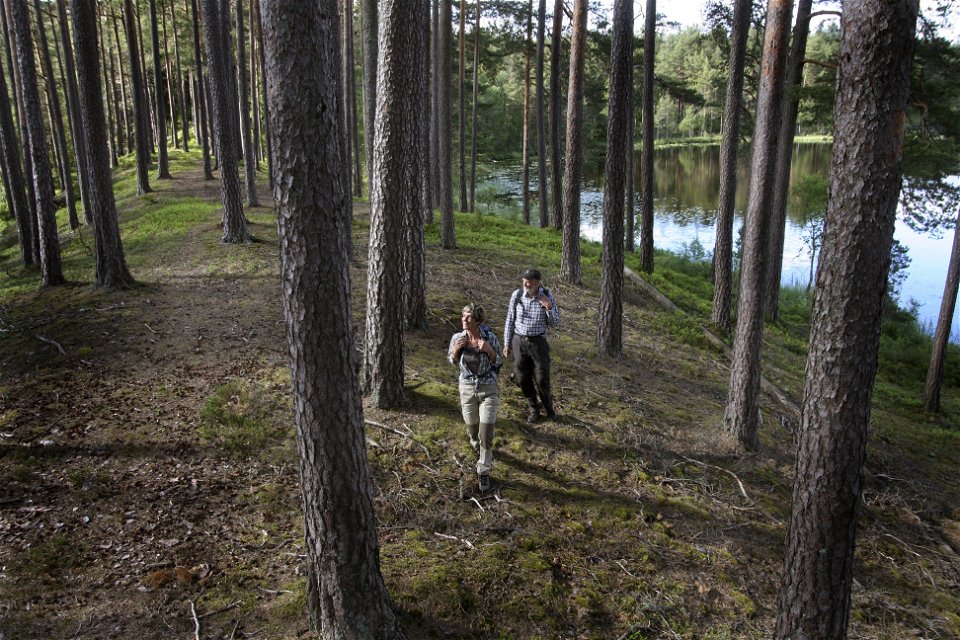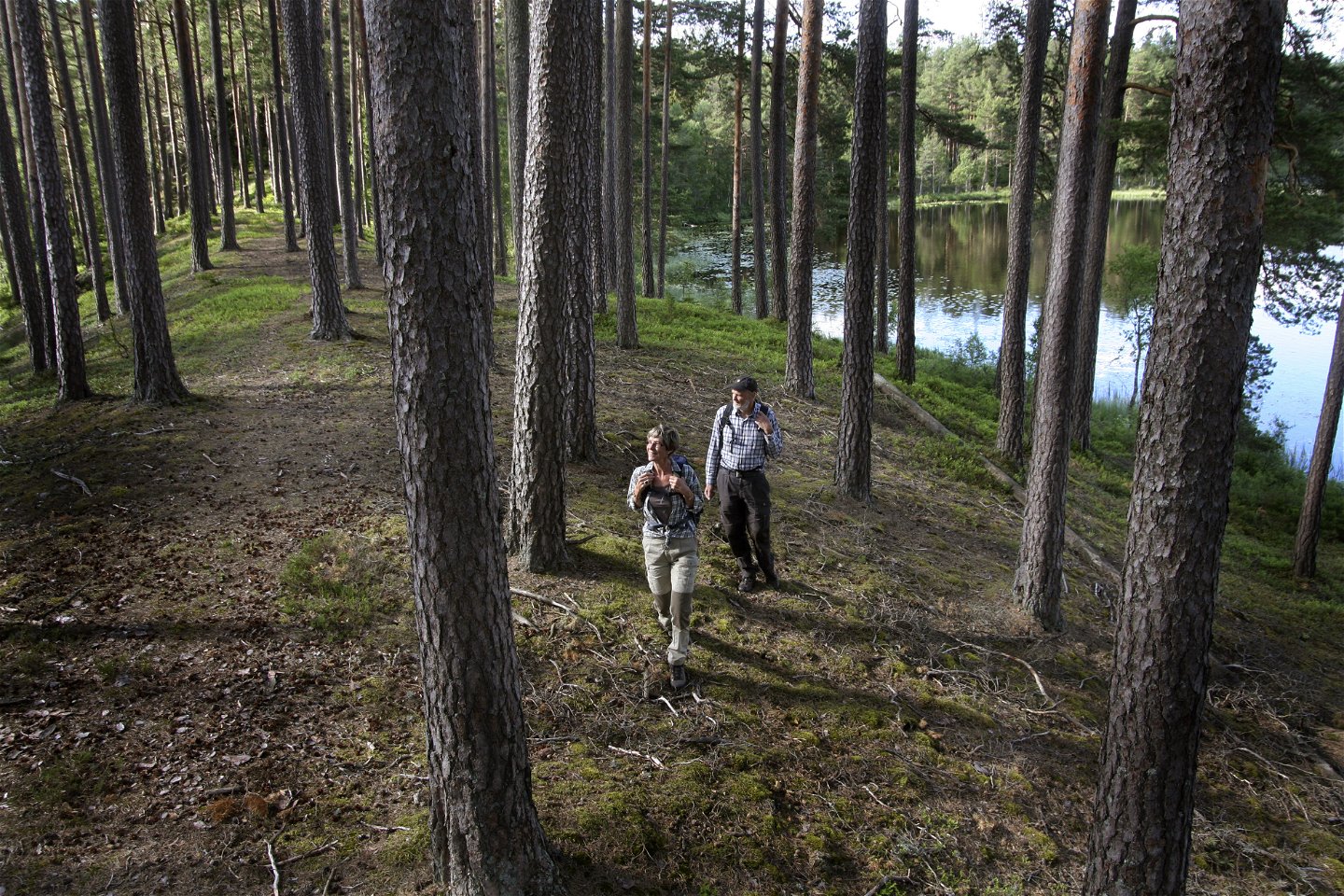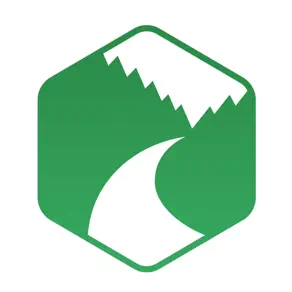Inform yourself about the Right of public Access, called "Allemansrätten"!
Images
In Sweden, everyone has the right to visit the nature. This is called the Right of public access, or the "Allemansrätten". It means that we get to roam in the woods and fields; picking mushrooms, berries and some flowers, swimming and boating on lakes and waterways. The public right also entails obligations. Visiting the swedish nature requires knowledge, respect and caution. Abuse and lack of judgment can jeopardize our unique public right. Remember that only you are responsible for your own footprints - and we are all part of a bigger cycle.
You are allowed to:
* Staying, walking or skiing over other people's land, but not close to someones home, or in fields with growing crops, unharvested hayfields and forest planting.
* Pass through fenced areas, fences and gates, as long as you do not destroy fences or cause other damage and close the gates again when passing.
* Pick wild berries, flowers and mushrooms. But don't pick more than you need - the flowers are most beautiful in nature. Some of them are protected, which you may not pick.
* Camp one night on non-agricultural land away from residential buildings. However, feel free to ask the landowner for permission. For group camping, you must always ask the landowner for permission. You are a group if either you have two tents or if you are more than 4 people.
* Take dry rice and dry branches from the ground to, for example, a small campfire.
* Make a fire if possible without risk of forest or grass fire and if there is no local or national fire ban.
* Bathe, temporarily moor your boat and disembark anywhere, except at sites or in such places where the authority has issued a disembarkation ban, for example to protect birdlife.
* Rowing, sailing, paddling or driving a motorboat on other people's waters, unless special access bans and speed restrictions apply.
* Take the dog with you in nature, but the dog must always be kept under such supervision that it does no harm. In practice, this means that the dog must be kept on a leash.
* Fish if you buy a fishing license or other permit. Always find out what regulations apply to the place where you want to fish. Some lakes does not sell fishing license, this means that the water is not available for visitors to fish in.
You are not allowed to:
* Damage crops in the fields or plants in the forest.
* Damage fences and gates and leave gates open so livestock may escape. Of course, you are not allowed to pass fences around someones home unless you have a special business.
* Take rice, branches, fists, bark, leaves, acorns, nuts or resin from growing trees or bushes. Protected plants are also forbidden to pick.
* Picking flowers, berries, mushrooms or fruit on other people's homeland/garden. Show the resident population great consideration - you are a guest in the grounds. Ask instead of taking for granted.
* Camping on someones private claimed land or parking a caravan on someone else's land. Motor vehicles can never be used in the nature under the right of public access, thay are for roads and established parking lots and camping grounds.
* Breaking or cutting branches and spruce, felling trees and bushes and otherwise causing damage to growing forest and land.
* Fire on meadow land, rocky outcrops or on such land that there is a risk of damage or fire.
* Swim from and disembark at someone else's jetty or lot. It is considered an intrusion and violation of domestic peace.
* Rowing, sailing, paddling or motor boating in restricted areas and violating speed regulations.
* You are responsible for any damage your dog causes. During the period 1/3 - 20/8, dogs must be kept on a leash.
* Drive motor vehicles in nature. This also goes for parking a motor vehicle just outside the road.
* Fishing without a permit and valid fishing license. A fishing license does not mean the right to stay in areas with a trespassing ban.
* Hunting without a special permit and national hunting license. (taking bird nests and eggs counts as hunting).
The Swedish Environmental Protection Agency has made information films about the Allemansrätten, which can be found via the link next to this text, along with other good information. This information is also available in many different languages.
Contact
Email address
Tingsryds Turistinformation



